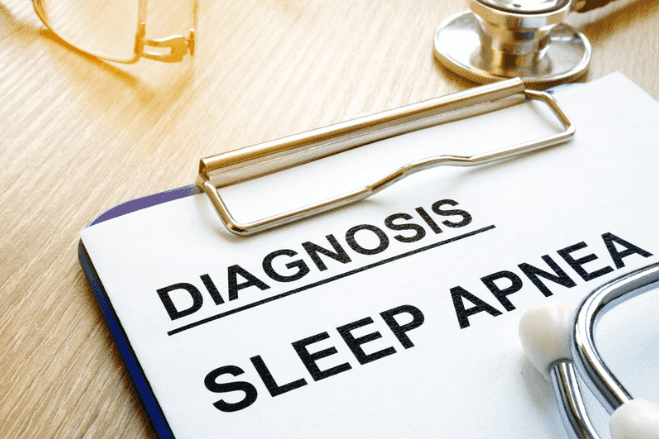According to the CDC, 90 million Americans suffer from some form of sleep apnea, and while this may not sound alarming, this large population means a lot of people are dealing with the resulting health problems. Sleep apnea is characterized by periodic pauses in breathing lasting more than 10 seconds during sleep. This results in sleep-disordered breathing, which can lead to heart failure, death and other problems. Sleep apnea is often characterized by loud snoring, which can be a sign that you have sleep apnea. In addition to snoring, sleep apnea can cause a variety of other symptoms, such as excessive daytime sleepiness or fatigue, and poor concentration.
Four symptoms of sleep apnea are:
- 1. Loud snoring
- 2. Excessive daytime sleepiness or fatigue
- 3. Poor concentration
- 4. Feeling unrefreshed after sleep
1. Loud Snoring: According to the National Sleep Foundation , loud snoring is a sign that you may have apnea. Oftentimes , those with sleep apnea will stop breathing for a period of time during the night . This results in loud snoring due to the upper airway collapsing and closing off.
2. Excessive Daytime Sleepiness or Fatigue : Waking up unrefreshed after sleeping can be a symptom of sleep apnea . This is because people with this condition tend to wake up numerous times throughout the night and experience low oxygen levels during these episodes .
3. Poor Concentration: Those that suffer from untreated sleep apnea may complain of difficulty concentrating at work or school , which is due to the lack of sleep .
4. Feeling Unrefreshed After Sleep : According to The Washington Post, feeling unrefreshed after sleep can be a sign that you have obstructive sleep apnea (OSA). This is important because snoring only accounts for 25% of all cases of OSA while another 25% has no symptoms at all. If your partner points out that you stop breathing during the night, this could be an indication that you have large tonsils/ adenoids, enlarged tonsils , or excess fatty tissue in your throat. It’s important to note that these other physical factors are not related to obesity. People who are overweight are more likely to develop sleep apnea due to the extra tissue in their throat that impacts breathing during sleep. If you or your partner notices this , talk to your doctor because there are treatments available.
Following treatment, study participants noted feeling more rested after sleep and having improved quality of life measures .
According to The Washington Post, feeling unrefreshed after sleep can be a sign that you have obstructive sleep apnea (OSA). This is important because snoring only accounts for 25% of all cases of OSA while another 25% has no symptoms at all. If your partner points out that you stop breathing during the night, this could be an indication that you have large tonsils/ adenoids , enlarged tonsils, or excess fatty tissue in your throat . It’s important to note that these other physical factors are not related to obesity. People who are overweight are more likely to develop sleep apnea due to the extra tissue in their throat that impacts breathing during sleep. If you or your partner notices this, talk to your doctor because there are treatments available.
Treatment for sleep apnea is very beneficial as it has been shown to improve quality of life measures and feelings of being rested after sleep, according to a study published in The Journal of Clinical Sleep Medicine .
